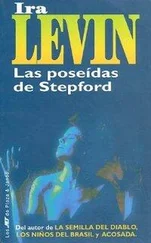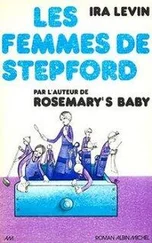He cleaned his teeth and got into bed and reread the note. Its writer or one of the other “unusual members” must have had access to UniComp’s memory of his boyhood self-classification thoughts, and that seemed to be enough to make the group think he might be sympathetic to them. Was he? They were abnormal; that was certain. Yet what was he? Wasn’t he abnormal too? We can help you more than you can imagine. What did that mean? Help him how? Help him do what? And what if he decided he wanted to meet them; what was he supposed to do? Wait, apparently, for another note, for a contact of some kind. Think about it, the note said.
The last chime sounded, and he rolled the piece of paper back up and tucked it down into the spine of his night-table Wei’s Living Wisdom. He tapped off the light and lay and thought about it. It was disturbing, but it was different too, and interesting. Would you like to meet some other unusual members?
He didn’t say anything about it to Bob RO. He looked for another note in his mouthpiece each time he came back to his room, but didn’t find one. Walking to and from work, taking a seat in the lounge for TV, standing on line in the dining hall or the supply center, he searched the eyes of the members around him, alert for a meaningful remark or perhaps only a look and a head movement inviting him to follow. None came.
Four days went by and he began to think that the note had been a sick member’s joke, or worse, a test of some kind. Had Bob RO himself written it, to see if he would mention it? No, that was ridiculous; he was really getting sick.
He had been interested—excited even, and hopeful, though he hadn’t known of what—but now, as more days went by with no note, no contact, he became disappointed and irritable.
And then, a week after the first note, it was there: the same triple bend of rolled paper in the mouthpiece. He picked it out, excitement and hope coming back instantaneously. He unrolled the paper and read it: If you want to meet us and hear how we can help you, be between buildings J16 and J18 on Lower Christ Plaza tomorrow night at 11:15. Do not touch any scanners on the way. If members are in sight of one you have to pass, take another route. I’ll wait until 11:30. Beneath was typed, as a signature, Snowflake.
Few members were on the walkways, and those hurrying to their beds with their eyes set straight ahead of them. He had to change his course only once, walked faster, and reached Lower Christ Plaza exactly at 11:15. He crossed the moonlit white expanse, with its turned-off fountain mirroring the moon, and found J16 and the dark channel that divided it from J18.
No one was there—but then, meters back in shadow, he saw white coveralls marked with what looked like a medicenter red cross. He went into the darkness and approached the member, who stood by J16’s wall and stayed silent.
“Snowflake?” he said.
“Yes.” The voice was a woman’s. “Did you touch any scanners?”
“No.”
“Funny feeling, isn’t it?” She was wearing a pale mask of some kind, thin and close-fitting.
“I’ve done it before,” he said.
“Good for you.”
“Only once, and somebody pushed me,” he said. She seemed older than he, how much he couldn’t tell.
“We’re going to a place that’s a five-minute walk from here,” she said. “It’s where we get together regularly, six of us, four women and two men—a terrible ratio that I’m counting on you to improve. We’re going to make a certain suggestion to you; if you decide to follow it you might eventually become one of us; if you don’t, you won’t, and tonight will be our last contact. In that case, though, we can’t have you knowing what we look like or where we meet.” Her hand came out of her pocket with whiteness in it. “I’ll have to bandage your eyes,” she said. “That’s why I’m wearing these medicenter cuvs, so it’ll look all right for me to be leading you.”
“At this hour?”
“We’ve done it before and had no trouble,” she said. “You don’t mind?”
He shrugged. “I guess not,” he said.
“Hold these over your eyes.” She gave him two wads of cotton. He closed his eyes and put the wads in place, holding them with a finger each. She began winding bandage around his head and over the wads; he withdrew his fingers, bent his head to help her. She kept winding bandage, around and around, up onto his forehead, down onto his cheeks.
“Are you sure you’re really not medicenter?” he said.
She chuckled and said, “Positive.” She pressed the end of the bandage, sticking it tight; pressed all over it and over his eyes, then took his arm. She turned him—toward the plaza, he knew—and started him walking.
“Don’t forget your mask,” he said.
She stopped short. “Thanks for reminding me,” she said. Her hand left his arm, and after a moment, came back. They walked on.
Their footsteps changed, became muted by space, and a breeze cooled his face below the bandage; they were in the plaza. “Snowflake’s” hand on his arm drew him in a diagonal leftward course, away from the direction of the Institute.
“When we get where we’re going,” she said, “I’m going to put a piece of tape over your bracelet; over mine too. We avoid knowing one another’s namebers as much as possible. I know yours—I’m the one who spotted you—but the others don’t; all they know is that I’m bringing a promising member. Later on, one or two of them may have to know it.”
“Do you check the history of everyone who’s assigned here?”
“No. Why?”
“Isn’t that how you ‘spotted’ me, by finding out that I used to think about classifying myself?”
“Three steps down here,” she said. “No, that was only confirmation. And two and three. What I spotted was a look you have, the look of a member who isn’t one-hundred-per-cent in the bosom of the Family. You’ll learn to recognize it too, if you join us. I found out who you were, and then I went to your room and saw that picture on the wall.”
“The horse?”
“No, Marx Writing,” she said. “Of course the horse. You draw the way no normal member would even think of drawing. I checked your history then, after I’d seen the picture.”
They had left the plaza and were on one of the walkways west of it—K or L, he wasn’t sure which.
“You’ve made a mistake,” he said. “Someone else drew that picture.”
“You drew it,” she said; “you’ve claimed charcoal and sketch pads.”
“For the member who drew it. A friend of mine at academy.”
“Well that’s interesting,” she said. “Cheating on claims is a better sign than anything. Anyway, you liked the picture well enough to keep it and frame it. Or did your friend make the frame too?”
He smiled. “No, I did,” he said. “You didn’t miss a thing.”
“We turn here, to the right.”
“Are you an adviser?”
“Me? Hate, no.”
“But you can pull histories?”
“Sometimes.”
“Are you at the Institute?”
“Don’t ask so many questions,” she said. “Listen, what do you want us to call you? Instead of Li RM.”
“Oh,” he said. “Chip.”
“‘Chip’? No,” she said, “don’t just say the first thing that comes into your mind. You ought to be something like ‘Pirate’ or ‘Tiger.’ The others are King and Lilac and Leopard and Hush and Sparrow.”
“Chip’s what I was called when I was a boy,” he said. “I’m used to it.”
“All right,” she said, “but it’s not what I would have chosen. Do you know where we are?”
“No.”
“Fine. Left now.”
Читать дальше











